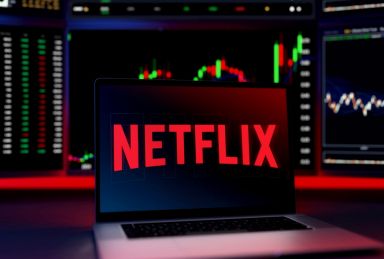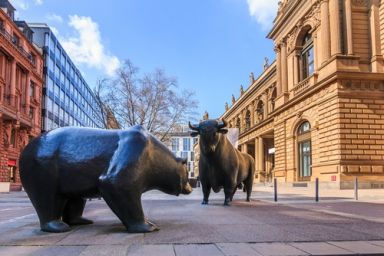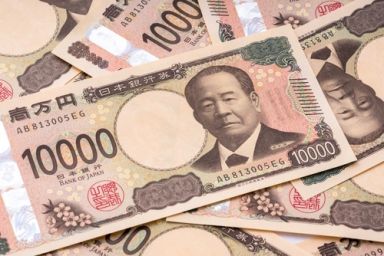Featured articles

Why Michael Burry just sold all his tech stocks
Michael Burry has just exited a nearly $100 million position on Nvidia that he opened earlier this year.
14:42, 9 October 2025

Gold forecast: Third-party price targets
Gold (XAU/USD) is currently trading at $3,982.94 (as of 6:12pm UTC, 7 October 2025), after briefly crossing $4,000 per ounce for the first time during the session.
14:43, 9 October 2025

How does Elon Musk impact cryptocurrency prices?
In cryptocurrency markets, few individuals command as much attention as Elon Musk. The CEO of Tesla and SpaceX’s tweets, Tesla and Dogecoin announcements, and public statements can trigger periods of heightened volatility, with shifts in buying and selling pressure across digital assets.
13:29, 30 September 2025

Coca Cola stock forecast: Third-party price targets
Coca-Cola trades at $67.36 as of 9:13am UTC on 15 October 2025, after moving within an intraday range of $66.64 to $67.37. The stock gained 0.88% from the prior session’s close of $66.80, continuing a gradual recovery from recent lows while remaining well below the 21 April 2025 peak of $74.38.
8 hours ago

Netflix stock forecast 2025–2030: Third-party price targets
Netflix (NFLX) traded at $1,213.88 as of 08:52 UTC on 15 October 2025, near the middle of its intraday range of $1,206.55 to $1,228.97.
10 hours ago

Volatile Trading Ahead of October Option Expiry as Dollar Rally Falters
Volatility in the stock market remained very high on Wednesday, 15 October, with sharp moves in both directions as equities searched for a clear path forward ahead of October’s option expiry.
11 hours ago

Trading the S&P 500 After Earnings from the Financial Heavyweights
Impressive results have helped it overcome trade worries and an ongoing shutdown for now, but the technicals are still conflicted on the shorter-term daily time frame due to last Friday’s plunge.
15 hours ago

SPX Looking for Direction Inside Recent Friday Range Amid Headline Risks
The SPX continues to face resistance above the 6700 level, with buyers repeatedly attempting to support the market but failing to generate sustained momentum beyond that mark.
7 hours ago

Volatile Trading Ahead of October Option Expiry as Dollar Rally Falters
Volatility in the stock market remained very high on Wednesday, 15 October, with sharp moves in both directions as equities searched for a clear path forward ahead of October’s option expiry.
11 hours ago

Trading the S&P 500 After Earnings from the Financial Heavyweights
Impressive results have helped it overcome trade worries and an ongoing shutdown for now, but the technicals are still conflicted on the shorter-term daily time frame due to last Friday’s plunge.
15 hours ago

Volatility Takes Control as Markets Test Key Support Levels
Volatility appears to be in the driver’s seat for markets, with trade-related headlines unsettling investors late in the session on 14 October.
16 hours ago

Beyond Gold & Silver: Palladium’s rally faces auto headwinds
Palladium has been profiting from easier macro conditions and fundamental drivers in the auto sector but the metal remains far away from its 2022 highs
09:30, 14 October 2025

Market Mondays: rare earths, tariff risk and where the next moves may come from
Renewed tensions between China and the US weigh on market sentiment, with gold and silver receiving another boost
11:23, 13 October 2025

Wall St steady as ceasefire tempers risk, gold consolidates
Traders react with cautious optimism to the news of a ceasefire between Hamas and Israel as the US government shutdown continues to cloud the outlook for rates
11:16, 10 October 2025

Gold forecast: Third-party price targets
Gold (XAU/USD) is currently trading at $3,982.94 (as of 6:12pm UTC, 7 October 2025), after briefly crossing $4,000 per ounce for the first time during the session.
14:43, 9 October 2025

Market Mondays: rare earths, tariff risk and where the next moves may come from
Renewed tensions between China and the US weigh on market sentiment, with gold and silver receiving another boost
11:23, 13 October 2025

Wall St steady as ceasefire tempers risk, gold consolidates
Traders react with cautious optimism to the news of a ceasefire between Hamas and Israel as the US government shutdown continues to cloud the outlook for rates
11:16, 10 October 2025

USD/JPY storms past 150 amid rising uncertainty
The Japanese Yen take a hard hit from the leadership change in Japan as markets expect higher fiscal spending and inflation
11:15, 8 October 2025

Trading Gold Above $4K: Fear, Foresight or Simply FOMO?
The technicals remain bullish with plenty of factors cited on the fundamental front, and traders both large and small remain very much in majority buy territory.
07:14, 8 October 2025

Why Tom Lee thinks Ethereum will rally to $16k in 2025
If you'd invested $10,000 in Ethereum 3 years ago, you'd have about $27,000 today.
17:07, 9 October 2025

Bitcoin price prediction: Third-party outlook
Bitcoin (BTC) was trading at $121,360.55 at 6:25pm UTC on 7 October 2025, down from an intraday high of $125,851.60 and just above the day’s low of $121,088.50.
15:17, 9 October 2025

Ripple price prediction: Third-party outlook
Ripple (XRP/USD) is trading at $2.86 as of 11.46am UTC on 23 September 2025, after moving within a $2.79-$2.99 intraday range.
15:31, 1 October 2025

Ethereum Price Prediction: Third-party outlook
Ethereum (ETH) was trading at $4,188.46 at 12:01pm UTC on 22 September 2025, rebounding from an intraday low of $4,153.49 but still below today’s high of $4,495.97.
15:18, 1 October 2025
